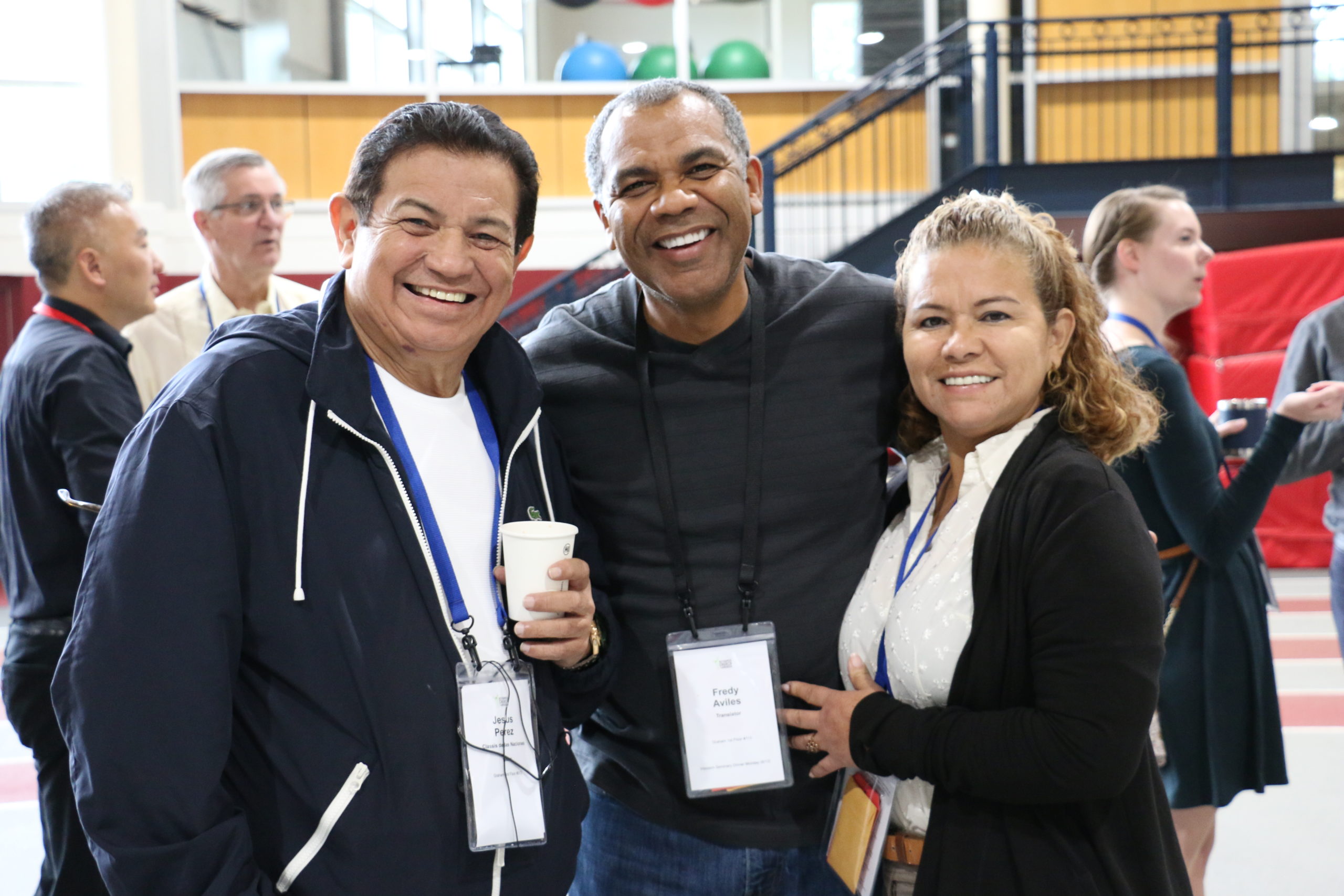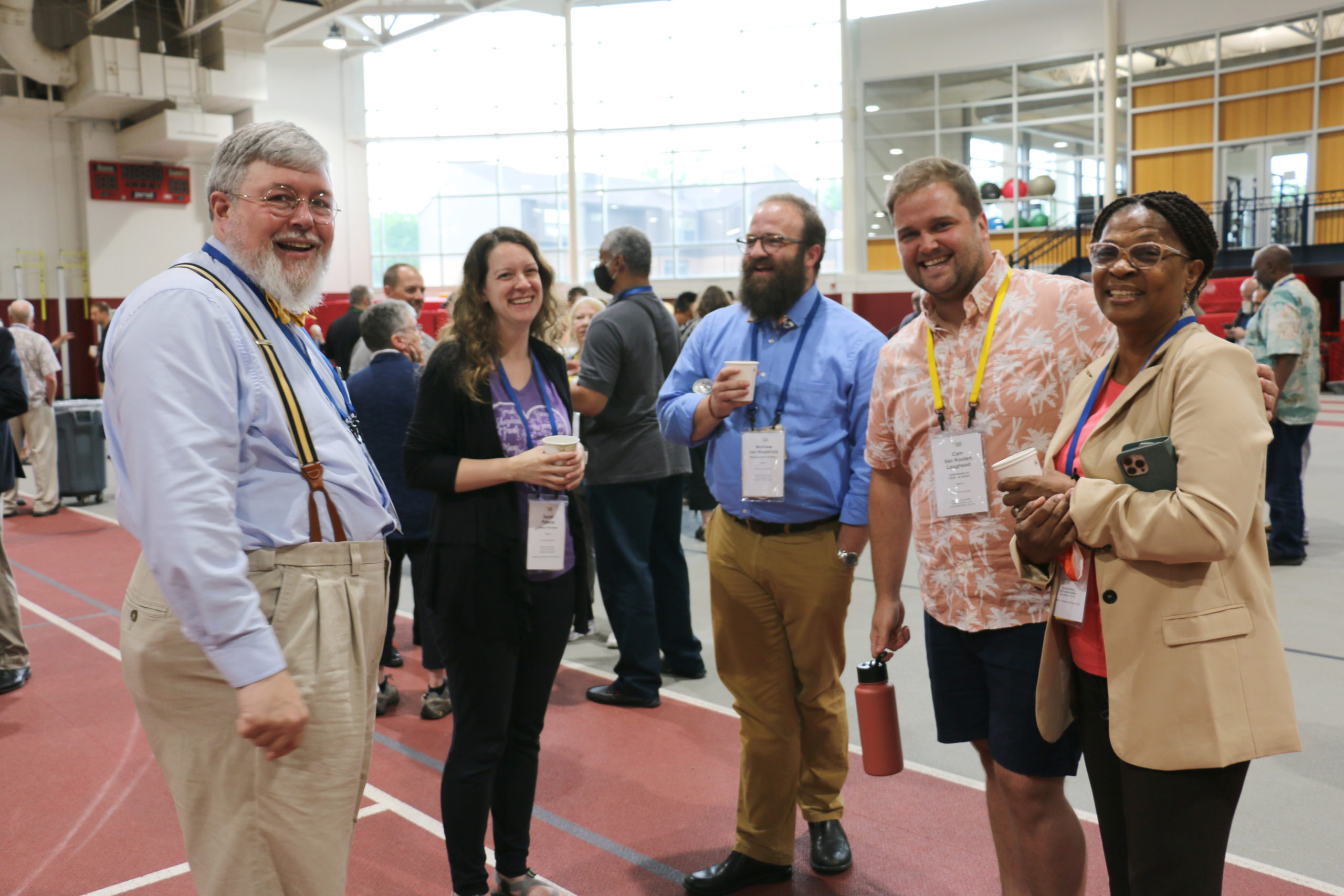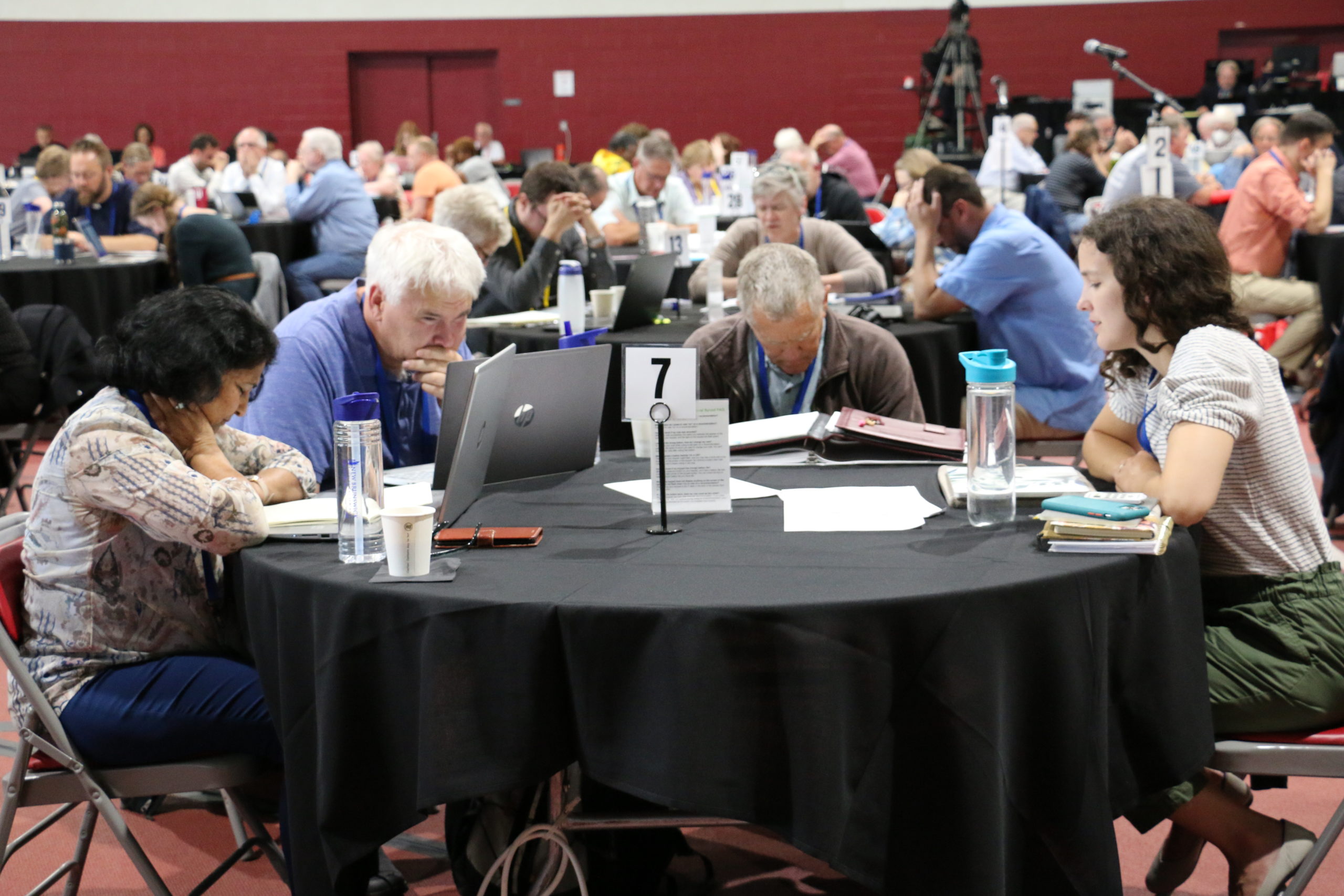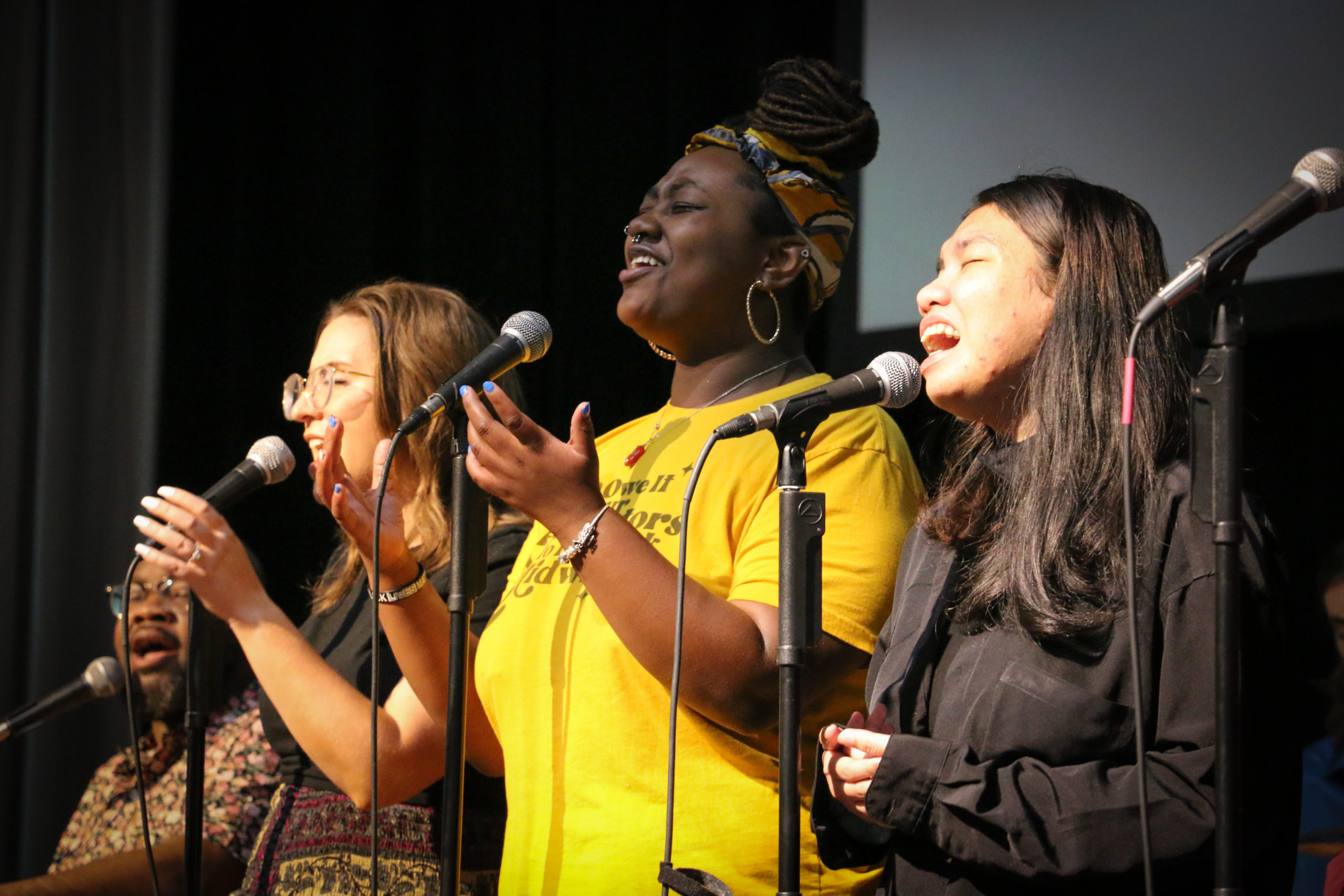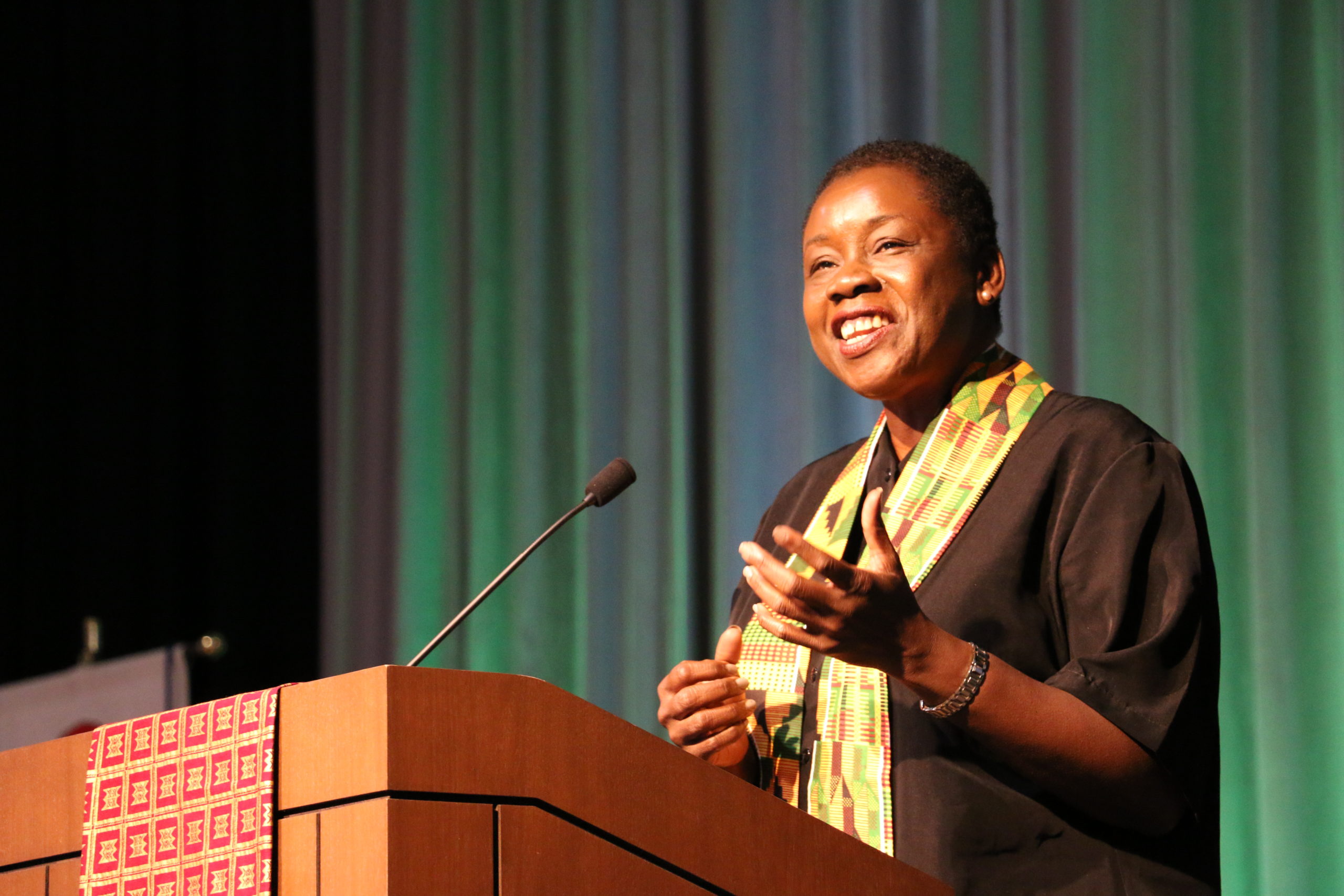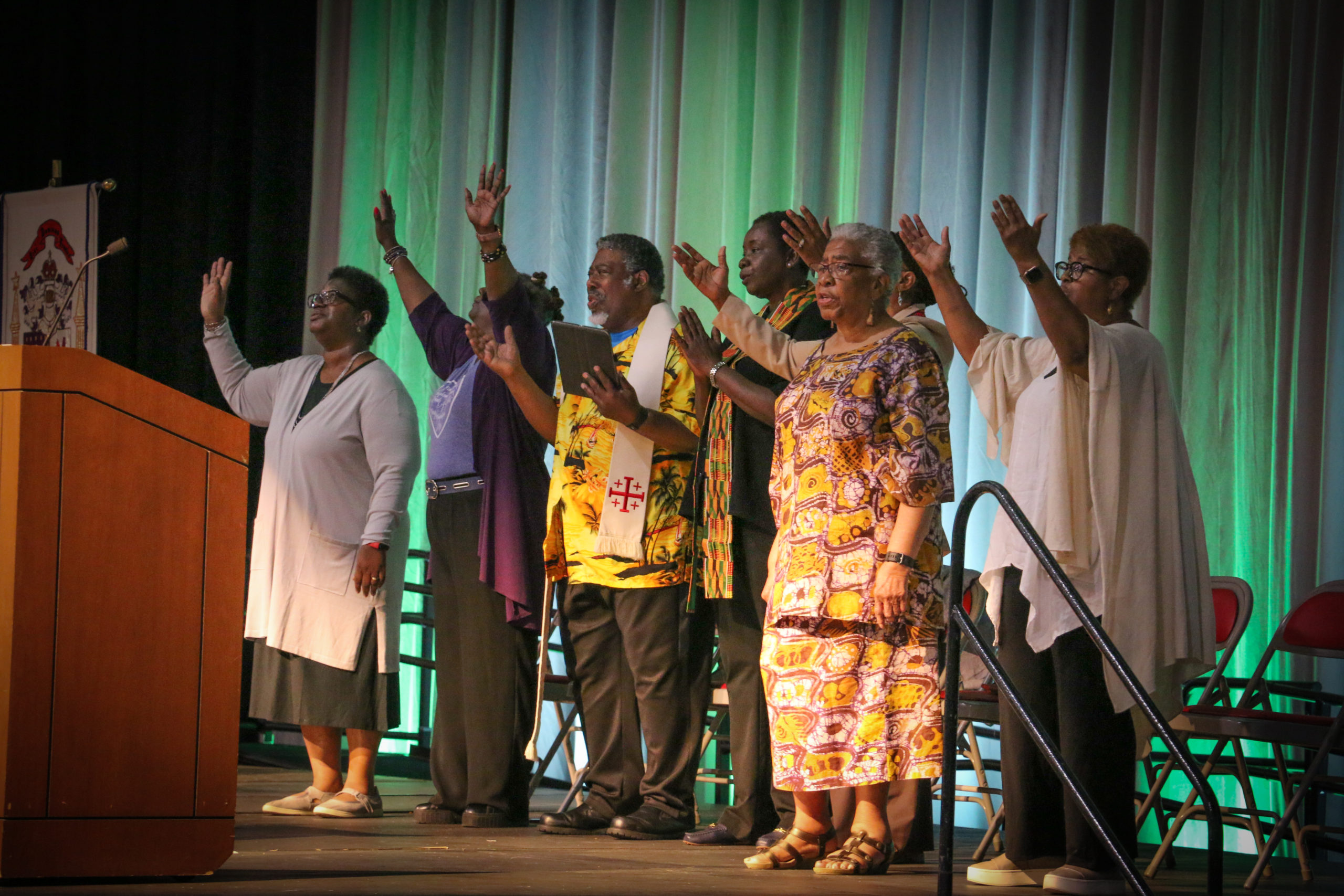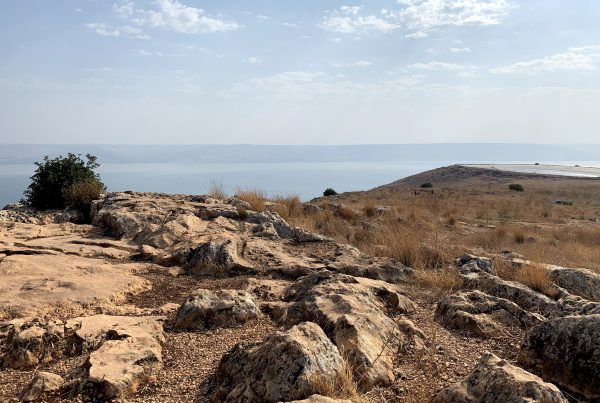General secretary calls for lament and hope
On Friday morning, general secretary Eddy Alemán addressed the General Synod with a message of lament and hope. He called the denomination to lament the challenges and losses in the world and in the denomination, including the lasting impacts of the COVID-19 pandemic, racial and social injustice, senseless deaths, churches leaving the denomination, and congregations having hard conversations.
“We need to lament the hurt that we cause each other. We need to lament the loss of each other. We need to lament not living up to General Synod’s vision of a mutually generous separation, and we need to recommit ourselves to generosity of spirit,” said Alemán. “We lament the loss of stability. We lament the collateral damage of these decisions: friction within congregations, attention deflected from mission and ministry, strained and broken relationships. We lament the divisions that we could not overcome.”
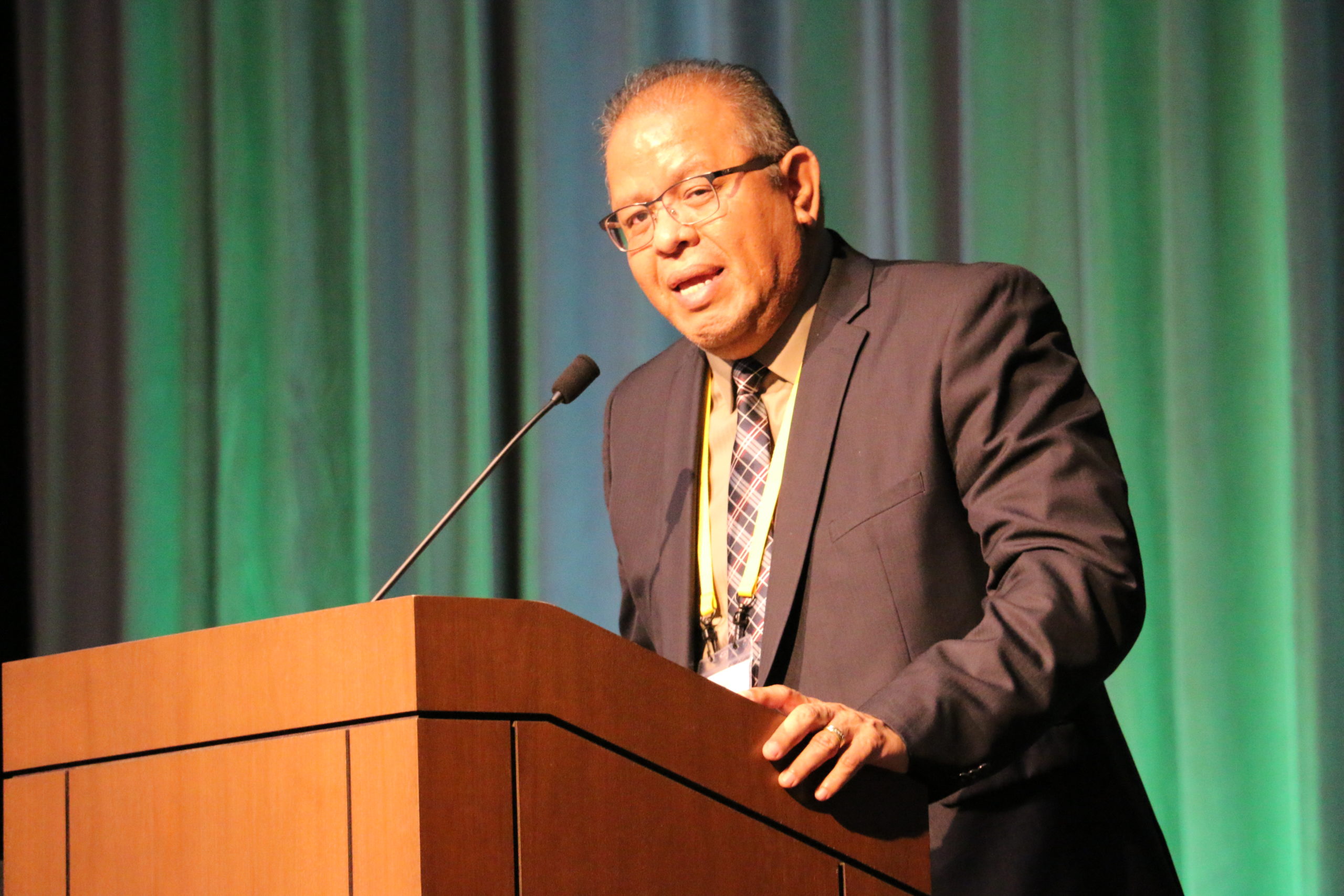
Alemán reflected on Psalm 13 as a biblical example of moving from lament into hope. He followed the meditation with a rewritten version of the psalm specific to the RCA.
“Hope removes all fears because it allows us to see the wonderful acts of God. Hope allows us to trust in God’s steadfast love. And thus, we can sing to the Lord and rejoice in his salvation,” said Alemán. “Even as we lament, there is so much to be hopeful for and to celebrate in the ministry of the Reformed Church in America.”
He cited hopeful examples of ministry from Transformed & Transforming, the RCA’s 15-year strategic ministry goal, as well as the encouragement he receives from visiting with church leaders and preaching around North America and beyond. What especially gives him hope, he said, are the new ministry connections being made in Nicaragua, Argentina, Uruguay, and Chile—leaders and churches who value Reformed creeds, confessions, and theology, and who want to connect with the RCA.
Alemán’s report concluded with the story of how lament became hope at Fourth Reformed Church in Holland, Michigan. As the ministry of Fourth Reformed was drawing to a close, a new ministry was just beginning in the same space; the BLVD Church.
“I believe this is a great example of the transformation that the Reformed Church in America is going through right now,” said Alemán. “We are in the midst of [moving from] experiencing death in many different ways to seeing and experiencing new life and hope about the future—a hope that is multiethnic, multiracial, and multi-generational, and a future that includes doing ministry with people in every walk of life, a future that involves us listening to the gospel, and a future that looks like Jesus.”
Synod deepens its commitment to antiracism
General Synod deepened its commitment to the work of antiracism and the vision of a multicultural future freed from racism on Friday morning. Delegates passed recommendations from the Commission on Race and Ethnicity (CORE) to:
- Urge all RCA entities to adopt an antiracism policy.
- Provide Sankofa journeys (immersive trips focused on looking back at the history of racism in order to move forward) and other experiences around healing racism, for the next three years. These will be funded by a $0.36/member assessment.
- Reinstate Native American and First Nations Ministries as a fourth/racial ethnic council. (Scroll down for more background on this council.)
- Embed antiracism values and practices in new church starts and regularly share progress and learnings from these efforts.
Nate Pyle, who delivered CORE’s report, prefaced the recommendations with an inspiring testimony to how God is moving the RCA toward a multicultural vision for the future, and a powerful challenge to the denomination to reckon with the racism that still remains within it.
“I may be a product of the RCA, but the future of the RCA does not look like me. The future of the RCA is multiracial and multiethnic,” said Pyle. “And that is a good thing. … It’s exciting because our denomination is increasingly looking like the kingdom of God.”
At the same time, Pyle spoke honestly about the challenges that stand in the way of the RCA realizing this vision. Here, he specifically addressed those who, like him, share the RCA’s white, Dutch roots.
“A multicultural future freed from racism sounds great in a vision statement, but living that vision out is much harder,” Pyle said. “Our identities have been wrapped up in this Dutch Reformed faith community. It’s not that we don’t want to share what we love. It’s that in sharing it, we don’t want to lose it. If, in trying to avoid that loss, we hold onto power, resist change, and marginalize people who don’t look like us, or act like us, .. we can unintentionally hold onto racist structures and institutions.
“How might some of us need to face the grief that we feel that our denomination isn’t going to be what it was?” Pyle wondered. “This is the work that we need to do if we’re truly going to be a denomination that is freed from racism.”
Watch Nate Pyle’s powerful message to the denomination in full:
Some history of the Native American/First Nations Council
An American Indian Council was formed in 1972; later, the council decided to transition away from an advocacy ministry to a leadership development program in the form of an annual retreat, at which time it stopped meeting as a council. Funding for the council was repurposed for annual leadership retreats, which continue. General Synod Minutes from 2003 provide insights into the transition; the Minutes from 2010 include an update from a Task Force to Restore the Voices of Native American/First Nations Congregations and Ministries. Taking the Jesus Road, a book in the RCA Historical Series, shares the history of RCA ministry among Native Americans; Called to Serve: Essays on RCA Global Mission also includes a chapter on the history of Native American churches in the RCA.
General Synod president encourages discernment
General Synod president Phil Assink addressed delegates on Friday afternoon, asking them to consider the question “What is God saying to us?” in both an individual and denominational context.
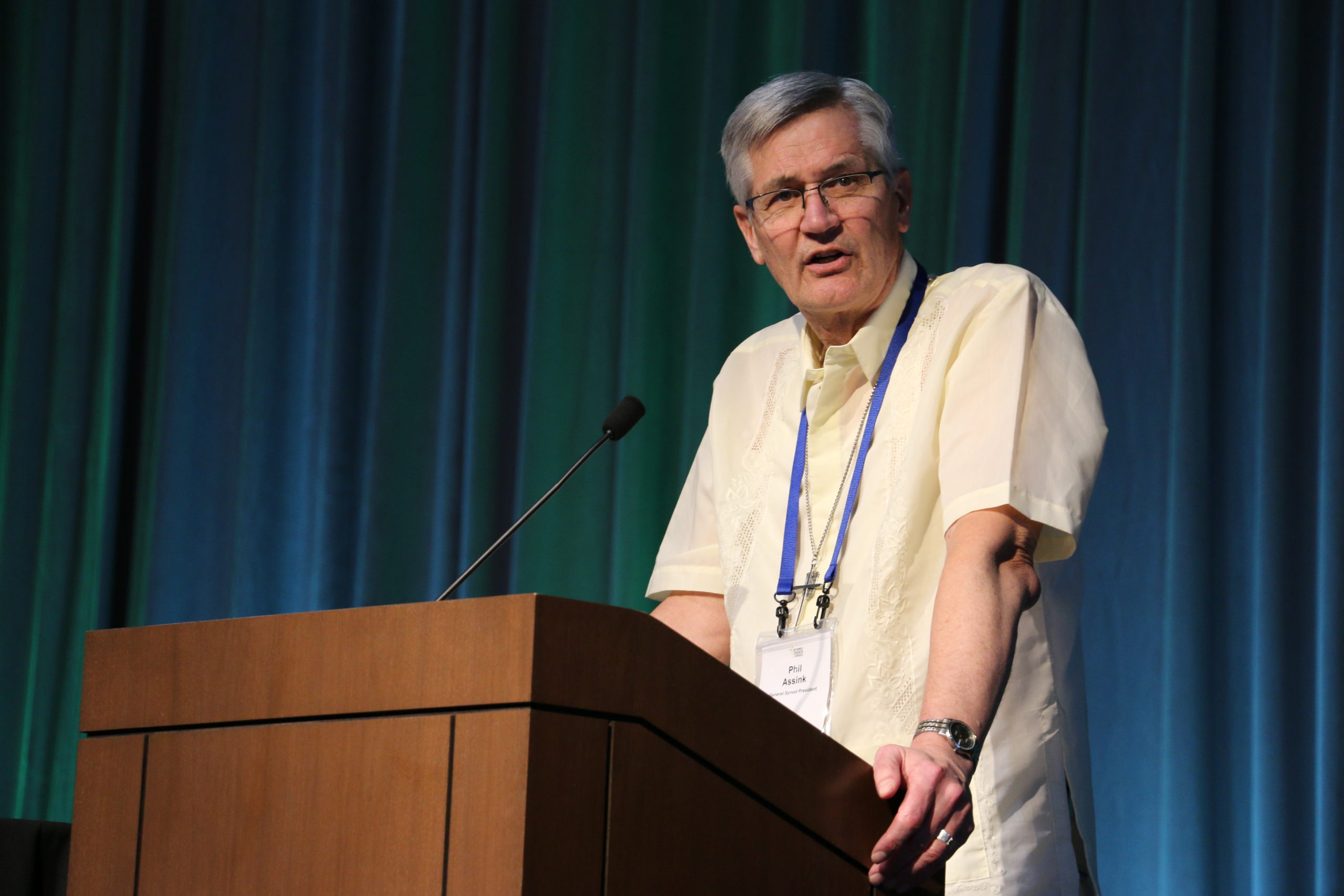
“We have the opportunity to make decisions in a manner that reshapes our culture of deliberation and confrontation,” said Assink. “I wonder how our dialogue would sound if, on matters of difference, we started by at least thinking, if not saying, ‘I could be wrong.’”
Like general secretary Eddy Alemán did earlier in the day, Assink lamented the brokenness in the denomination, yet also celebrated the good work that God continues to do through the RCA: next generation engagement opportunities, dismantling racism work, She Is Called Bible studies and retreats, North American and international church planting, and ecumenical partnerships.
“While our wounds and flaws threaten to define us, I also want us to consider what God is saying to us through the mission and ministry that flourishes across the RCA. The RCA has important work it is engaged in to celebrate,” he said.
Recent tragedies across the United States, such as the school shooting in Uvalde, Texas, prompted the president to bring a proposal before the synod body, directing the Commission on Christian Action to consider the Alliance for Hope International as a potential ministry partner of the RCA to “support the intervention and prevention of violence.” At the invitation of the president, the General Synod paused to pray over these recent tragedies and “for God to help us as a church and as his people to intervene and remove some of the violence from our society.”
Assink’s second presidential proposal encourages congregations to continue to support RCA missionaries and mission partners through Partnership-in-Mission shares (PIM shares), regardless of whether they are staying in or leaving the denomination. Both proposals will come to the General Synod for voting on Saturday morning after a formal recommendation from the advisory committee on overtures and new business.
Restructuring Team invites delegates—and the denomination—into their work
On Friday evening, four of the eleven members of the Restructuring Team—Gildo Vieira, Andrea Godwin-Stremler, Greg Brower, and Michelle Chahine—gave the delegation an update on their work, which began in March 2022, following the members’ appointments in February.
The members expressed a strong sense of calling and unity among the team, even as they acknowledged holding different beliefs and coming from diverse backgrounds. Vieira invited the delegates to join the team in reading Pursuing God’s Will Together by Ruth Haley Barton and pleaded with the denomination to add the restructuring team to their daily prayers. Brower and Chahine both shared testaments to the power of discernment and listening prayer. Each presenter also emphasized that the team is attuned to the Holy Spirit for guidance—and believes God has a hope-filled future for the RCA.
“Nothing is too big for God and those who are called according to his purposes. God’s got this. God’s got this. Be excited. Be hope-filled. Have anticipation for God to reveal to us, to reveal to all of us, in this room and across our many countries, what he has in store for us,” said Godwin-Stremler. “With your partnership in prayer and God’s guidance and blessing, this will be done to the glory of God.”
Chahine concluded the plenary session by leading the General Synod in a spiritual discernment exercise for leaders. Together, the synod read aloud a prayer of transformation, practiced listening prayer—and complete silence—for ten minutes, then spent a half hour in group listening and reflection.
This exercise mirrored one the restructuring team undertook during their in-person May meeting.
Read a more in-depth update on restructuring and generous separation in the RCA.
Other business
- The African American Black Council led delegates in a time of worship to open the day.
- Synod heard reports from the Board of Benefits Services, the Commission for Christian Unity, and the Commission for Christian Discipleship and Education.
- Synod approved guidelines for administering gluten-free Communion from the Commission on Christian Worship.
- Delegates wrote letters of blessing to those at churches who are departing the RCA. Then they prayed for the churches they had written to and for the churches and assemblies represented at their table.
Friday in photos
